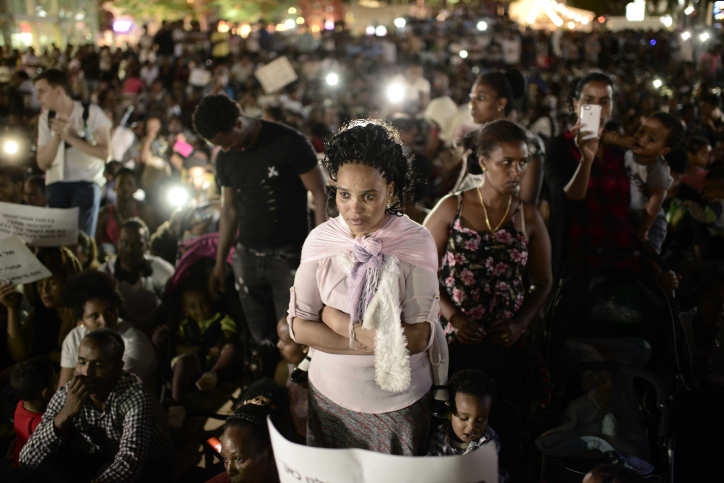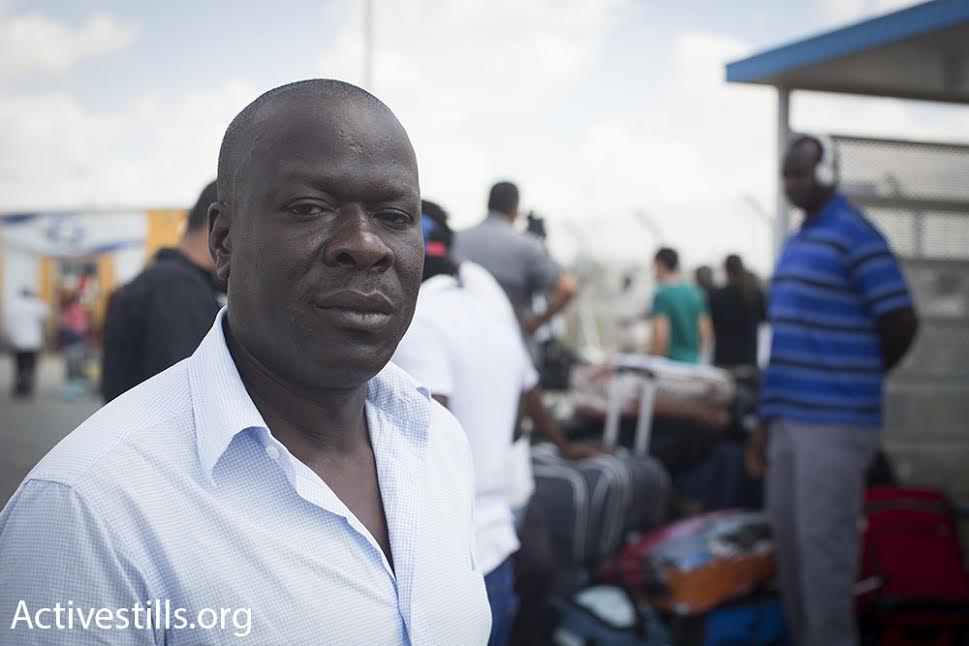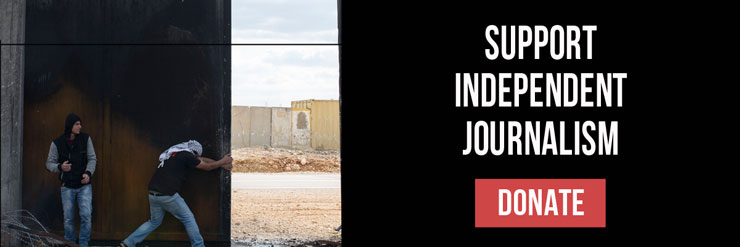Even as it invokes the Holocaust at every turn, Israel is feeding the people who most need its protection to a brutal human smuggling industry. In doing so, it becomes an active player in the worst migration crisis since the Jewish people’s near-extinction.

Exactly one decade ago, liberal Israelis were boasting of their government’s treatment of the refugees who had recently begun entering the country, largely from Sudan. In the face of the genocide in Darfur, Jewish organizations all over the world had enlisted to move the international community to act. Israelis got on board, motivated by what Haaretz’s Bradley Burston called a “kinship of genocide.” In September 2007, after extensive hand-wringing, the Israeli government extended residency permits to roughly 500 refugees from Darfur.
In an ordinary Western country, this would have been unremarkable. In Israel, which has virtually no legal paths to residency for non-Jews who aren’t related to Jewish citizens, this was a sweeping show of humanitarianism.
The intervening years have seen a dramatic decline in the country’s treatment of the people who have arrived in search of shelter. There have been many low points along the way. But it seems things can always go lower, as reflected in this week’s news that Israel will be ordering asylum seekers from Eritrea and Sudan to leave the country or go to jail.
According to a Haaretz report, most asylum seekers from Eritrea and Sudan will soon be ordered to exit Israel within 90 days or be detained indefinitely in the Saharonim desert prison. Technically, this measure will only concern those whose applications for asylum were rejected or who failed to apply. However, the screening process in Israel is grossly deficient — with a recognition rate of less than 1 percent — and most of these rejected applicants would probably qualify for refugee status under international law and according to the standards of the rest of the developed world.
Presumably, Israel intends to relocate most of them to Rwanda and Uganda, with whom it’s struck deals to receive them. Rumor has it both countries are getting cash and weapons in exchange for the unwanted asylum seekers.
Refugee resettlement is not in itself invalid, though it is hard to justify a rich country that’s host to 40,000 asylum seekers offloading this population onto two poor countries that are currently home, between them, to close to 2 million. But given extensive reports on what’s actually happening to the asylum seekers Israel is funneling through these shady channels, this week’s news is downright chilling.
Extensive investigations conducted by Foreign Policy, Haaretz, and others show that the asylum seekers deported “voluntarily” to Rwanda and Uganda in recent years are being stripped of their papers, locked up, and forced to leave the countries they thought were taking them in. Years after going through the torture camps of Sinai to Israel, they now reenter the world of human smuggling – from Rwanda to Uganda, back to Sudan, and often on to Libya, home to a burgeoning slave trade, from where they attempt to reach Europe. Haaretz estimates that hundreds of deportees from Israel have subsequently died at sea. At least three have been executed by ISIS.
A new low

I began working for the UN High Commissioner for Refugees in 2009, when the numbers of asylum seekers from Eritrea and Sudan were just starting to sharply rise. In the years prior, Israel had little experience with (non-Palestinian) refugees, and it largely outsourced its asylum screening process to UNHCR.
In those days, the UN’s word meant something, and because of its firm positions against sending Sudanese and Eritreans home, they stayed. International and domestic law said that if they couldn’t be deported, they also couldn’t be imprisoned, and newly arrived asylum seekers were relatively quickly released from detention after registering with the government.
It wasn’t all roses: the asylum seekers didn’t have access to an asylum process, health care, or other basic services. Many were held for long periods in detention. But in the early years, non-refoulement, the principle of international law that forbids a country from deporting people to places where their lives will be in danger, was fundamentally respected. Most asylum seekers were able to work. It looked like they might be able to rebuild their lives.
Any optimism was clearly short-lived. Rather than integrate the asylum seekers, Israel instead chose a path of employment crackdowns, long-term detention schemes, “voluntary repatriation” initiatives, border fences, and a slew of other draconian efforts to crush this vulnerable population.

On regular visits to detention centers, my colleagues and I, along with other refugee advocates working in Israel, began hearing testimonies about the horrors of getting smuggled to Israel through Sinai. Over months of captivity, smugglers would extort destitute asylum seekers for thousands of dollars they didn’t have. They were whipped with cables, burned with hot irons, and hung from their feet. Women became sex slaves, and were gang raped for days on end. Men and children were sodomized.
Israeli officials, initially, shared our horror. The Knesset convened panels. Social workers were deployed. The worst cases received mental health treatment. Women were funneled into a special track for victims of human trafficking, and given access to shelter and medical professionals.
The present looks very different. Now, even as it continues to invoke the Holocaust at every turn, Israel is feeding the people who most need its protection directly to a brutal human smuggling industry. In doing so, it becomes an active player in the worst migration crisis since the Jewish people’s near-extinction.



